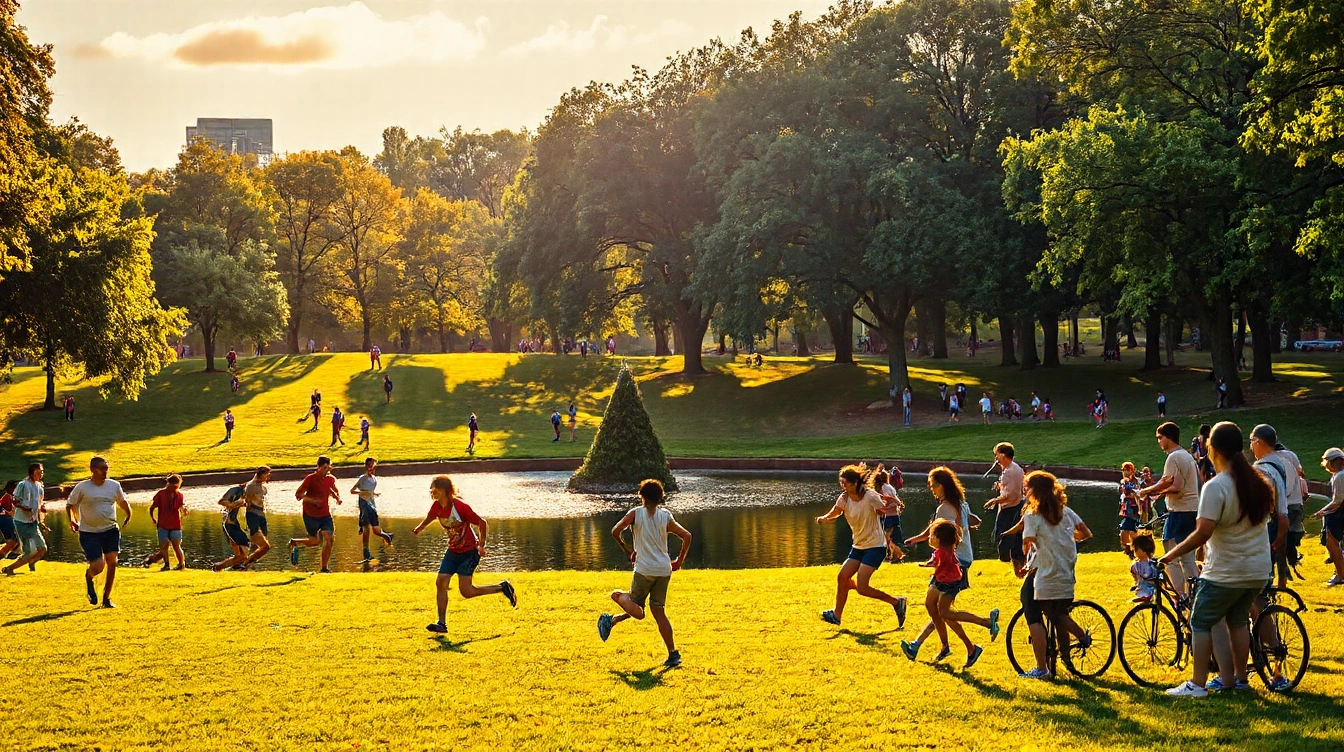Immediate Impact of UK Sports on Local Communities
Sports in the UK drive significant community transformation by fostering strong social ties. Local sports clubs act as vital hubs, creating social cohesion by bringing diverse groups together. This interaction helps reduce social isolation and promotes a sense of belonging—key elements in building resilient communities.
Participation in UK sports also leads to notable health and wellbeing improvements. Regular engagement encourages physical activity, which reduces risks of chronic illnesses such as heart disease and diabetes. Mental health benefits are equally important, with sports participation linked to decreased stress levels and improved mood.
In the same genre : What Role Does Technology Play in Enhancing UK Sports Coverage?
Beyond social and health advantages, UK sports inject substantial economic energy into local areas. Sporting events and grassroots initiatives generate employment opportunities and attract visitors, benefiting local businesses and services. This economic boost reinforces the community by sustaining livelihoods and funding further development projects.
Therefore, the immediate impact of UK sports stretches far beyond the field, resonating throughout social, health, and economic dimensions—an impressive testament to their value in local communities.
Also to read : What Are the Unique Challenges Faced by UK Athletes in Their Training Programs?
Case Studies and Examples of UK Sports Driving Change
Exploring UK sports case studies reveals how grassroots clubs profoundly impact their local communities. For example, grassroots football clubs often serve as social hubs, offering youth development programs that promote physical health and foster social inclusion. These clubs demonstrate tangible local community benefits by reducing antisocial behaviour and encouraging teamwork.
A prominent example includes the Sport England initiatives, government-backed programs designed to increase participation and improve access to sporting opportunities. These programs have successfully driven change by funding local projects and supporting infrastructure, making sports more accessible across socioeconomic backgrounds.
Municipal partnerships further enhance this impact. For instance, collaborations between local councils and sports organisations have resulted in new facilities, such as community sports centres and upgraded pitches. These investments catalyse greater public engagement and participation rates among diverse age groups.
Together, these successful sports initiatives illustrate that strategic support and community involvement are key to sustaining positive change. They showcase how targeted approaches can enhance the social fabric while championing healthier, more active lifestyles throughout the UK.
Role of Sports in Youth Engagement and Development
Sports play a crucial role in youth engagement by providing structured activities that encourage positive behaviour. Engaging young people in sports in local communities offers a proven method to reduce antisocial behaviour and youth crime rates. When youths participate regularly, they find purpose, belonging, and a healthy outlet for energy, directly impacting their avoidance of negative influences.
Beyond physical activity, involvement in sports fosters youth development through sports by teaching valuable life skills such as teamwork, discipline, and time management. Educational advancement is often supported as many programs encourage maintaining good academic standing to continue participation. This linkage reinforces a cycle of achievement both on and off the field.
Additionally, sports programs provide essential mentorship and leadership opportunities. Coaches and older peers serve as role models, helping young people build confidence and develop leadership qualities. These experiences prepare youths for future challenges and encourage them to take active roles within their communities. Therefore, the impact of sports extends well beyond fitness—it nurtures character, community connection, and personal growth.
Economic and Infrastructure Development Linked to Sports
Sports as a catalyst for local growth
The local economic impact of sports is profound, often driving job creation and enriching volunteer opportunities within communities. Sporting events, from grassroots tournaments to professional matches, stimulate employment by requiring staff for organization, facilities management, and event operations. Volunteers gain experience and social connections, further benefiting the community.
Investment in sports infrastructure UK enhances both the quality and accessibility of facilities. Improved stadiums, training venues, and recreational spaces not only serve athletes but also raise the standard of local amenities. This infrastructure development promotes community health and attracts future sporting events, creating a virtuous cycle of investment and use.
Another crucial element is community regeneration. Major sports events can rejuvenate neighborhoods, boosting local business through event-driven tourism. Visitors attending matches or competitions frequently spend on accommodation, dining, and entertainment, providing consistent revenue streams. The positive ripple effects incorporate urban renewal projects, improved transportation, and increased public spaces, which elevate both the economy and quality of life.
In essence, sports serve as a vital engine for economic vitality and infrastructure enhancement, which underscores the importance of continued support for sporting ventures.
Initiatives Fostering Inclusion and Social Mobility
Efforts pushing sports inclusion UK are vital in promoting social mobility by making sports accessible to all, especially marginalised groups. Tailored sports programs focus on removing barriers that disadvantaged communities face, offering opportunities that nurture talent and build confidence. These programs often adapt facilities and coaching to meet diverse needs, ensuring participation is genuinely inclusive.
Disability sport initiatives play a significant role, providing specialised support and equipment designed to encourage wider participation. By addressing physical and social challenges, these initiatives help individuals overcome obstacles, fostering a sense of belonging and achievement within their communities.
Community outreach further amplifies accessibility by bringing sporting activities directly to underserved areas. Workshops, local events, and partnerships with schools encourage young people to engage in sports, creating pathways for personal development. This proactive approach illustrates how accessible sports programs serve as crucial platforms for enhancing social mobility across the UK, empowering individuals to realize their potential beyond conventional limitations.
Practical Methods for Community Transformation Through Sports
Sport-based transformation thrives when community sports strategies focus on accessibility and collaboration. Multipurpose facilities serve as hubs, accommodating diverse activities and encouraging greater participation. By designing spaces for various sports and events, communities can maximise usage, attracting different age groups and interests.
Effective transformation often involves strong partnerships. Collaboration between schools, local councils, and sports organisations creates a support network that drives engagement and resource sharing. This synergy enables better scheduling, equipment use, and outreach efforts, enhancing the impact of UK sports programs.
Sustainability depends on thoughtful funding models. Combining public funding, grants, and local sponsorships ensures continuous support for community projects. Tailored support options, such as volunteer involvement and training, strengthen the operational capacity of sports initiatives. These methods make community sports both viable and vibrant, driving lasting positive change through well-structured and inclusive programs.







